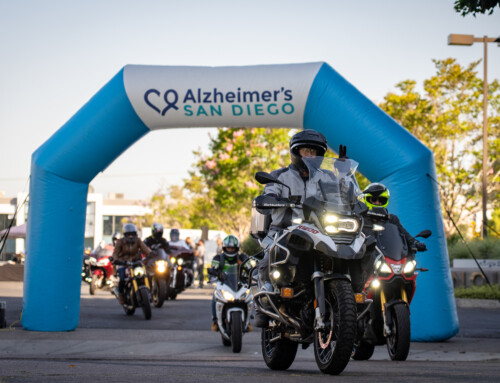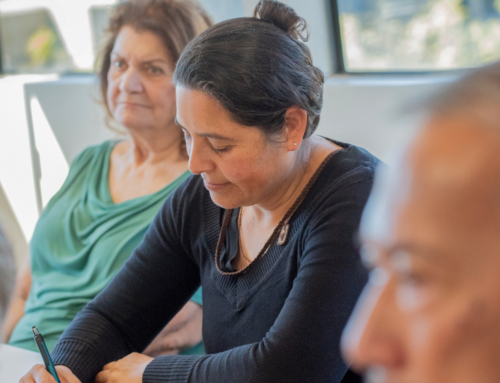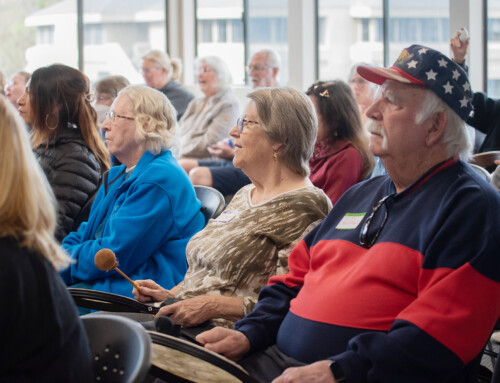 Allison is a student at SDSU and is one of our incredible ALZ Companion interns. Each week, she spends four hours with Kira, who is living with dementia, so that Kira’s family can take a break from caregiving. Keep reading to find out the important lesson Allison has learned since becoming an ALZ Companion.
Allison is a student at SDSU and is one of our incredible ALZ Companion interns. Each week, she spends four hours with Kira, who is living with dementia, so that Kira’s family can take a break from caregiving. Keep reading to find out the important lesson Allison has learned since becoming an ALZ Companion.
By Allison Cooper
When I first started my ALZ Companion internship with Alzheimer’s San Diego, I had very little knowledge of Alzheimer’s disease or dementia. With training, I became equipped with the knowledge and skills I would need for the family I would be matched with.
When I had my first meet up-with an Alzheimer’s client, Kira, I was unaware that she was Russian and did not speak any English. At this point, I could have opted out of matching with this client because it was only a first meeting. However, I could tell that her care partner, Karina, really needed the extra help so that she could have some free days to leave the house. So I decided that I would give it a shot being Kira’s companion intern.
When I was first left alone with her, I’m not going to lie…I felt a little uneasy. I have always been the best at connecting with people through words, so it was different not being able to do that. With each day that I spent with Kira, I was able to feel more and more comfortable. Instead of connecting through words, I started gesturing more and focusing on my facial expressions. When she spoke in Russian, I would nod and smile. I took note of her interests, such as classical music and TV, and incorporated them into our time spent together.
RELATED | Become an ALZ Companion
A typical day for us together is to sit outside and watch the hummingbirds come to the feeder as I switch off between classical music and my favorite type of music. I can tell by the way Kira hums along that she is enjoying it. Then we will go inside and I put on a Russian show with English subtitles. This way, we are able to laugh and smile at the same parts.
Our days together are simple, yet cherished. Normally, I am the type of person who has to be doing something or consoling someone in order to feel like I am helping a person. In this case, I realized all I needed to do was to be present. By being present, listening to her, and keeping her company, I feel as though what I am doing is worth it. By learning how to be comfortable around someone who does not speak English, I was able to apply it to another aspect of my life. When my sister-in-laws’ parents (who are from Poland and speak no English) came to visit America for the first time a few weeks ago, I felt comfortable being alone with them and trying to communicate through gestures and facial expressions. It was a really fun experience and it made me even more grateful for overcoming the challenges of connecting with someone using no words.
People like Allison make a true difference in the lives of local Alzheimer’s caregivers. Click here to learn more about becoming an ALZ Companion.





